-
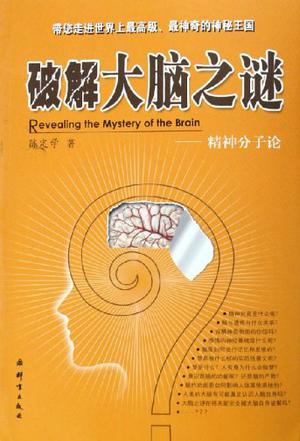
破解大脑之谜
人类的大脑是生命进化史中的一个顶峰,是世界上最复杂、最高级、最神奇的器官,但也是一个充满谜团的神秘王国。精神是大脑的产物,然而人脑中的精神究竟是一个什么样的东西呢?人脑中的精神究竞是什么样子呢?精神真的如哲学家们所说是一种虚无缥缈、神秘莫测的非物质的灵魂、理念或 “幽灵”吗?物质的大脑为什么会产生出非物质的精神呢?大脑又是如何产生出精神的呢?古往今来,精神与物质、心灵与肉体的关系问题一直是困扰哲学与科学的难题,一直是一个无法解开的“世界之结”,精神与物质究竟具有什么关系呢?我们有可能解开这个“世界之结”吗?人类的大脑具有非凡的思维能力,然而我们的大脑为什么能够进行思维呢?大脑究竟是通过什么东西进行思维的呢?思维的本质与机理究竟是什么呢?大脑能够记忆浩若烟海般的信息,我们的脑为什么能够记忆呢?记忆的物质基础究竟是什么呢?记忆又存储在脑的什么地方呢?有些记忆为什么能够保存终生呢?小小的人脑为什么能够容纳浩若烟海般的信息呢?当我们看外部世界的时候,在我们的脑中能够形成许许多多五彩缤纷、栩栩如生的图像,我们的脑为什么能够形成这些五彩缤纷、栩栩如生的图像呢?人们都说在我们的脑中存在着一个博大浩瀚的精神世界,然而这个博大浩瀚的精神世界究竟存在于脑的什么地方呢?人脑中的这个精神世界又是由什么东西构成的呢?人类与动物的根本区别就在意识,然而究竟什么是意识呢?大脑这块貌不惊人的物质为什么能够产生出神奇的意识呢?人类具有无与伦比的智慧,正是这种无与伦比的智慧使人类成为“宇宙之精华、万物之灵长”,然而究竟什么是智慧呢?人的智慧又是从哪里来的呢?天才是如何产生的?天才的脑有什么特别之处吗?我们为什么会做梦呢?梦是如何形成的?梦又具有什么意义呢?人类是一种富于感情的动物,然而究竟什么是感情呢?人类为什么会产生感情呢?感情形成的机理究竟是什么呢?……大脑之谜是一个纷乱如麻、深邃难解的谜团,在这个谜团中包含着82个谜以及194个谜中谜,这个谜团不仅成为四大科学之谜之首,也对科学构成了最困难、最严峻的挑战,直到21世纪的今天,人类依然无法破解大脑之谜。 本书作者对大脑之谜进行了长达40多年的探索,而本书就是作者40多年探索的总结与结晶。本书提出了一个原创的精神理论与脑理论——精神分子论,并通过这个新的理论从新的角度对大脑之谜进行了新的探索,通过新的探索,本书对纷繁复杂的82个大脑之谜以及许多谜中谜都作出了全新的解释与回答,初步揭开了大脑谜团的神秘面纱。本书还揭示了人脑中的一个新大陆——人脑中的精神分子世界,揭示了精神活动的微观过程及分子机理,并且对许多深邃难解的精神现象例如思维、精神、意识、潜意识、自我、梦、智慧、感情以及意识感受性等也做出了全新的解释,而这些解释有可能初步填补哲学、心理学以及脑科学领域中的一些薄弱环节与空白区。本书还从脑科学的角度对精神与物质、心灵与肉体的关系问题作出了更为精细的解释,试图破解这个困扰哲学与科学多年的“世界之结”。本书的一大特色就是创新,书中不仅提出了一个新的精神理论与脑理论,而且还提出了不少新概念、新观点、新思路及新假说,其中仅原创观点就多达200余个。 本书不仅对大脑之谜以及精神现象之谜进行了新的探讨,而且还从脑科学的角度对哲学、心理学、认知科学、意识科学、思维科学、生命科学、教育科学以及计算机科学等多个学科中的一些重要的理论问题进行了新的探讨,并提出了一些全新的观点与思路,所以本书很值得脑科学或神经科学家、哲学家、心理学家、认知科学家、意识科学家、思维科学家、生命科学家、教育科学家、计算机科学家以及相关学科的研究人员、教师及学生一读。本书的语言也颇具特色,由于尽量通过生动活泼、通俗易懂的语言去阐释深奥的理论问题,尽量把复杂的专业问题写得通俗明白,尽量为枯燥的学术著作增添一些文采,所以本书也十分适宜所有对大脑及精神问题感兴趣的读者阅读。 本书提出了“精神分子论”在确立后,将对传统世界观提出挑战。 其“传统世界观关于两个世界的图景并非是真实可信的,精神世界与物质世界其实是同一的,从两个世界到一个世界,在21世纪的今天,极可能会发生一次世界观的革命”之提法,仅是作者个人的一种观点和设象,欢迎广大读者批评。 -
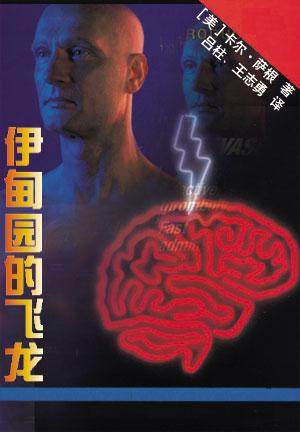
伊甸园的飞龙
“如果不清楚萨根的背景,你很难想到这本书出自一位行星天文学家之手。本书并非着意于传达生物学知识,而是在现有发现的基础上对智力的过去与未来进行推测,并探讨梦境、睡眠、多种文明共有的龙的传说、模糊而强烈的本能恐惧等事物的起源。也许,我们早餐吃煎蛋的习惯也与进化史上千万年前的事件有着某种关联。”——www.oursci.org -
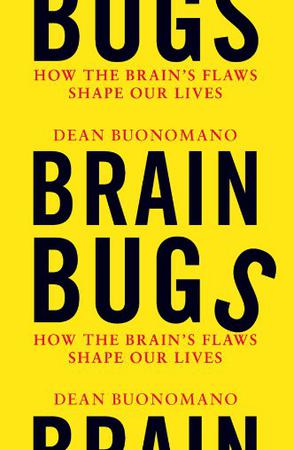
Brain Bugs
The human brain is more beautiful and complex than anything we could ever build but it's far from perfect. Our memory is unreliable; we can't multiply large sums in our heads; advertising manipulates our judgment; we tend to distrust people who are different from us; supernatural beliefs are hard to shake and we prefer instant gratification to long-term gain. Dean Buonomano illuminates the causes and consequences of these "bugs" in terms of the brain's innermost workings and their evolutionary purposes. He then goes a step further, examining how our brains function - and malfunction - in the digital, predator-free, information-saturated, special effects-addled world that we have built for ourselves. Along the way, this lively, surprising tour of mental glitches and how they arise gives us the tools to hone our cognitive strengths while recognising our inherent weaknesses. -
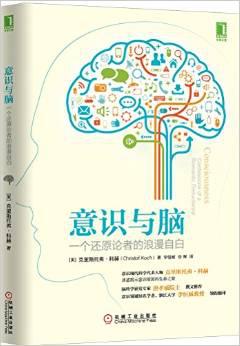
意识与脑
-
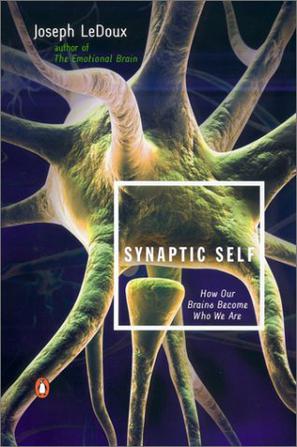
Synaptic Self
Amazon.com A middle-aged neuroscientist walking down Bourbon Street spots a T-shirt that reads, "I don't know, so maybe I'm not." This stimulus zooms from eyes to brain, neuron by neuron, via tiny junctions called synapses. The results? An immediate chuckle and (sometime later) a groundbreaking book titled The Synaptic Self. To Joseph LeDoux, the simple question, "What makes us who we are?" represents the driving force behind his 20-plus years of research into the cognitive, emotional, and motivational functions of the brain. LeDoux believes the answer rests in the synapses, key players in the brain's intricately designed communication system. In other words, the pathways by which a person's "hardwired" responses (nature) mesh with his or her unique life experiences (nurture) determine that person's individuality. Here, LeDoux nimbly compresses centuries of philosophy, psychology, and biology into an amazingly clear picture of humanity's journey toward understanding the self. Equally readable is his comprehensive science lesson, where detailed circuit speak reads like an absorbing--yet often humorous--mystery novel. Skillfully presenting research studies and findings alongside their various implications, LeDoux makes a solid case for accepting a synaptic explanation of existence and provides to the reader generous helpings of knowledge, amusement, and awe along the way. --Liane Thomas --This text refers to an out of print or unavailable edition of this title. From Publishers Weekly Despite ongoing debate about the root cause of psychological disorders, most agree that the development of the self is central to the distinction between normality and psychopathology. Yet neuroscientists have been slow to probe the biological basis for our sense of self, focusing instead on states of consciousness. LeDoux (The Emotional Brain), professor at New York University's Center for Neural Sciences, has come up with a theory: it's the neural pathways the synaptic relationships in our brains that make us who we are. Starting with a description of basic neural anatomy (including how neurons communicate, the brain's embryological development and some of the key neural pathways), LeDoux reviews experiments and research, arguing that the brain's synaptic connections provide the biological base for memory, which makes possible the sense of continuity and permanence fundamental to a "normal" conception of self. Writing for a general audience, he succeeds in making his subject accessible to the dedicated nonspecialist. He offers absorbing descriptions of some of the most fascinating case studies in his field, provides insight into the shortcomings of psychopharmacology and suggests new directions for research on the biology of mental illness. While some may disagree with LeDoux's conclusion that "the brain makes the self" through its synapses, he makes an important contribution to the literature on the relationship between these two entities. Agents, Katinka Matson and John Brockman. (On-sale: Jan. 14) Copyright 2001 Cahners Business Information, Inc. --This text refers to an out of print or unavailable edition of this title. -
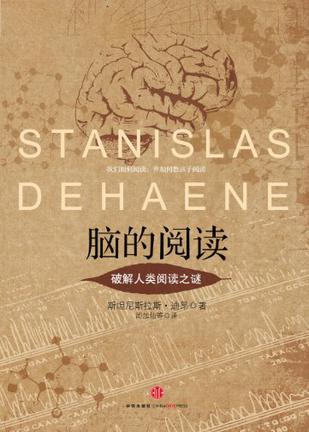
脑的阅读
千百年来,眼睛扫视书页,并唤起脑中的整个阅读过程,这种看似简单实则非常复杂的脑机制一直是一个难解之谜。我们对阅读的行为已经习以为常,而忘记了它是一项非常惊人的成就。白纸上的一个个黑色符号是如何引发一系列的声音以及意义的呢?我们的大脑皮层是上百万年演化的结果,我们原本的生存环境中并不存在书写与阅读,但灵长类的脑又是如何演化出识别单词和符号的能力的呢? 法国科学院院士、著名认知神经科学家斯坦尼斯拉斯?迪昂根据他在人脑阅读方面卓有成效的研究,破解了这个谜团,向我们展示了人脑神奇阅读能力是如何形成的。迪昂在大量实证研究的基础上,全新地看待脑阅读机制与文化的思想深刻地改变了我们对教育和学习的观点,史无前例地引领着我们探索人类的能力。